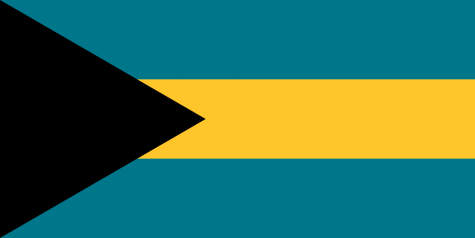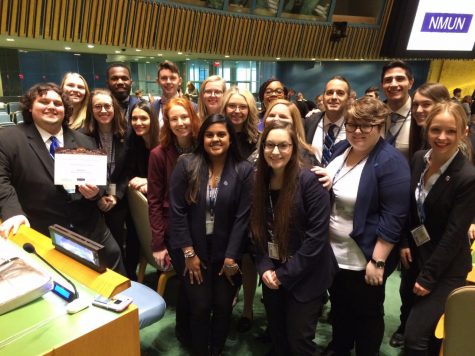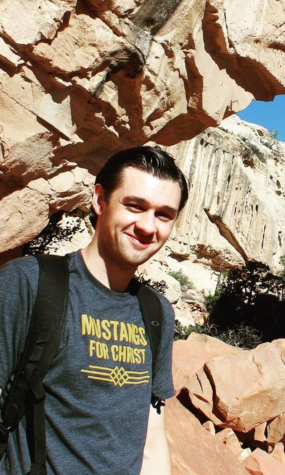Model UN prepares to represent the Bahamas in virtual competition
MSU Texas’ Model United Nations team will represent the Bahamas National Model UN conference at the end of March, competing virtually against thousands of other college students in a simulation of international affairs, committees and negotiations.
“Model United Nations is a simulation of the United Nations in which students role play the diplomats and ambassadors to the United Nations from a particular country. Each student team represents an assigned country and represents that country’s interests in committee meetings on topics such as non-proliferation of nuclear weapons, climate change, global development, refugee policy or global health,” according to the Model UN page on msutexas.edu.

Dr. Steve Garrison, an advisor for Model UN at MSU, saw the team through the cancellation of the 2020 conference but now prepares the 2021 team for the virtual competition this year. According to Garrison, the Model UN team researched their assigned country in preparation for their role in the conference, as well as how the Bahamas operates within the real world, international community. Before the conference, teams must also prepare position papers: research-based descriptions of the Bahamas’ position on committee assignments. At the conference, the team will choose initiatives to advocate for and subsequently use strategy, trade-offs, argument rebuttals, teamwork and preparation to pass a resolution.
On the first day of the conference, the Model UN team will decide from a host of possible initiatives to advocate for. In the proceeding days, participants will establish a path towards passing that initiative through a resolution. Success in passing a resolution is the most prominent measure of success in the simulation. Orchestrating a chorus of countries requires strategy, trade-offs, argument rebuttals, teamwork and preparation.
“We work on lots of things like public speaking, negotiation and compromise, [as well as] how to develop a coalition or a group of countries that might support or advocate certain types of things,” Garrison said, regarding how the team prepares for the competition.
Using a virtual environment for such a strategically oriented competition means some coalition building might prove more challenging than in previous years, as debates between coalition leaders could turn unpredictable.

“When these negotiations are going on, things can change like that,” Garrison said. “A couple years ago, we had a student that developed a coalition he thought was a majority… and he went to eat lunch, and [a rival country] had blown it all up…. So, I’m a little worried about how that all works in the digital world.”
While some might presume the Bahamas as disadvantaged as a smaller country in the UN, Garrison sees a different dynamic at work.
“It’s hard to stand out as being really good at Model UN when you’re one of those superpower countries,” Garrison said. “So, we try to go for those countries that have special niches and are smaller and can really make a difference…. The year we were Iceland, we won the top award.”
During the competition, depending on the issue and country, members may be forced to advocate for something contrary to their own beliefs. While advocating initiatives that participants actually disagree with may deter some, Model UN participants embrace the multifaceted nature of the challenge.
“Yes, they say it’s hard to advocate for some of these types of things,” Garrison said, “but I think typically the students that we select enjoy that.”
While the roleplaying and strategizing elements offer a wide range of opportunities to display logical prowess, students must devote preparation to “the room where it happens”: the committees.
“There’s a financial committee, there’s a status of women, there’s an environmental assembly, there’s a world heritage sites, all these various, different committees and they all have very specific purposes and jurisdictions,” Garrison said. “Each committee has to work in tandem with the other, and we have overarching initiatives that we’ll support which are reinforced in those position papers. They have to all be working together towards the same work.”
Participants must research and provide an accurate picture of their country’s behavior in the international arena. They must use public speaking and negotiation skills to build coalitions and actively engage with perspectives different from their own. This toolbox of liberal arts skills is all in an effort to influence and change a simulated world of international proportions.

Hey everyone! My name is Joseph Nelson, and I am an English major graduating in 2022. I joined The Wichitan in the Fall of 2020, and I've really enjoyed...







